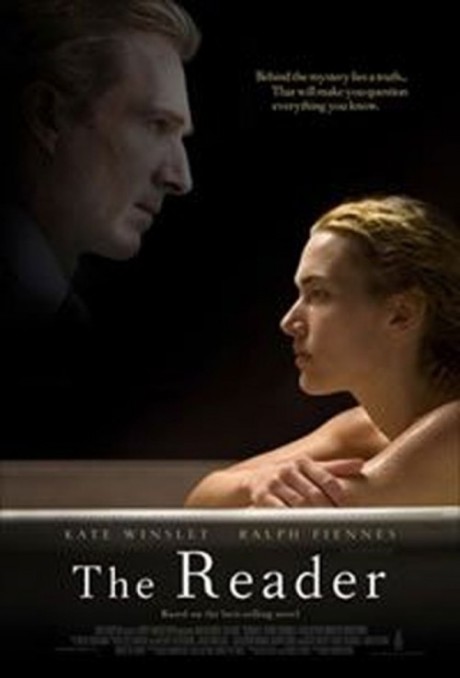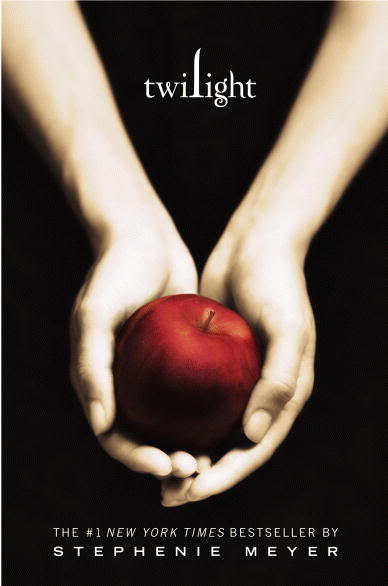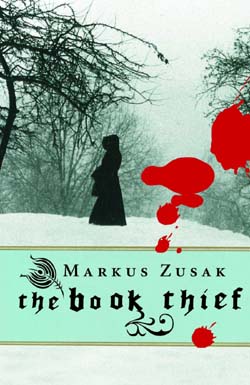Is it ever too early to start re-writing? July 26, 2011
Posted by pacejmiller in Fantasy, Misc, Novel, On Writing, Study.Tags: Anne Lamott, Bird by Bird: Some Instructions on Writing and Life, Book Thief, Markus Zusak, Philip Pullman, rewriting, stephen king, writer resources, Writing
2 comments
I’m trying to put my focus back into writing starting this week, and one aspect of that is to revisit my dormant fantasy novel which I have been thinking about a lot these past couple of months. I still think the book as potential and I like the story it has to tell, but having written significant chunks of it around 2 years ago, I know it will require plenty of work.
Conventional writing wisdom suggests that rewriting comes after completion of the first draft. The primary goal in the first attempt is to just get the words of the story out of your mind, out of your system and onto the page. Anne Lamott, who wrote the popular writing book Bird by Bird, discussed at length the unavoidable ‘shitty first drafts’ even excellent and seasoned writers churn out on a regular basis.
The idea is that if you worry and procrastinate over every paragraph, sentence or word, you’ll never generate any momentum and it will take you much longer to finish the story. And often it’s when you are in that ‘zone’ of pumping out a copious amount of words at a frenetic pace that some of your best writing is generated (though it has to be ‘unearthed’ from all the crappy stuff).
However, although I am not even at the halfway line of the first draft of my fantasy epic (around 150,000 words), I’m highly tempted at the moment to go back to the beginning and rewrite a few of the first chapters. One of the main reasons is that I realised my beginning lacked a serious punch. After an action-packed prologue, I started with the usual boring ‘fantasy world introduction’ chapter where I introduced the characters and the world in which they lived in a methodical fashion. It occurred to me that it would have made a lot more sense to start in the middle of the action, beginning with the final of a tournament in which the protagonist is involved in. In the current version, the tournament was already over by the time the story began.
But would rewriting before I’ve even finished the first draft be a waste of time? What if I later change my mind and come up with a better intro? What if later on I decide to change characters or events?
I read in an interview with Philip Pullman (author of the His Dark Materials trilogy) that he doesn’t have a particular method when it comes to writing and rewriting. Sometimes he waits until the end and sometimes he does it as he goes along.
In Stephen King’s brilliant On Writing (my review and summary here), he says that first drafts should be completed within 3 months, which is pretty much supernatural for most people out there, but even for him, this essentially means no rewriting until the first draft has been completed. King also recommended putting the draft aside for a while before coming back to it with fresh eyes. That said, King might be an anomaly because he seems to churn out pretty decent first drafts. I say this because he suggests that a second draft should tighten a first draft by 10% and that he usually only does two drafts and a polish for a novel.
Markus Zusak, author of The Book Thief, said in an interview that he did literally 150-200 drafts of the first 90 pages just to get it right. Can you imagine that? I did about 5 or 6 drafts of the first chapter of my Masters writing project and I found it to be brutal already.
In the end, my gut tells me that I should just do whatever I feel like, whether it’s keep going or go back to the beginning. It’s been so long that anything is better than nothing.
Narrative Writing and Creative Writing Classes March 3, 2010
Posted by pacejmiller in Novel, On Writing, Study.Tags: Annie Proulx, Aspiring Writer, creative writing, creative writing class, creative writing course, Elmore Leonard, Hilary Mantel, Ian Rankin, Joyce Carol Oates, Lisa Pryor, narrative writing, Neil Gaiman, PD James, Philip Pullman, Pin Striped Prison, Ten rules for writing fiction, The Guardian, writers, writing advice, writing class, writing tips
2 comments
Yesterday I attended my second class, this time in ‘narrative’ writing. I guess they didn’t want to use the term ‘creative’ writing because for whatever reason that tends to get frowned upon.
I was really looking forward to this one to re-kick start my stagnant fantasy novel and to get the creative juices flowing. I’ve only been writing blog posts and journalistic stuff the last few months and I’ve been dying to get back into the swing of things from a storytelling standpoint.
It was another reasonably sized class with around 20 people, but only 4 guys. The tutor seemed nice, but it took a while to get the ball rolling. A lot of chit chat (for 3 hours!) and not much actual learning. Hopefully this will change from next week.
There was a discussion on the difference between narrative, story and plot (seriously, no one had any idea; all confident attempts at answering were futile and bordered on embarrassing). I, of course, kept my mouth shut.
For those wondering, ‘narrative’ involves a story and a storyteller; ‘story’ is a series or sequence of events; and ‘plot’ is the way those events are arranged. I don’t really see how that helps much but nevertheless…
The tutor did hand out an interesting piece from journalist Lisa Pryor (you know, author of The Pin Striped Prison, which I reviewed here). In the UK, The Guardian published an article with some advice from great authors on how to write fiction (link below), and Pryor decided to rip into creative writing courses by effectively piggy-backing off The Guardian.
She said that amongst the hundreds of tips, not one recommended taking a creative writing class. According to Pryor:
“Perhaps this is because they know that if you can’t work out what good writing is by reading widely, if you need it spelled out with the benefit of a circle of plastic chairs and a whiteboard, you lack the mettle to be a great novelist.”
Ouch, and she was just getting started. Pryor then tore into the “creative writing racket”, what she calls the “pyramid selling scheme” where schools and universities essentially trick students into taking these courses to provide much-needed funding.
Look, I am often a cynic myself (and I hate that), but this article just rubbed me up the wrong way, and it’s not because I am taking a writing course. Yes, it is probably true that to be a truly ‘great’ writer, you need lots of talent to go with skills picked up from copious amounts of reading and writing. But for the ordinary folk (like myself) who know they aren’t capable of becoming or don’t necessarily want to be a ‘great’ writer, there’s nothing wrong with taking a class to learn some basic writers tools to improve their writing (for whatever reason or purpose).
You may argue that these skills don’t need to be taught – they can be picked up from years and years of doing your own readings and writings; but why not pay for a short cut? It’s like saying people who want to be prudent investors (just to improve their lifestyles) should play with their money through trial and error for ten years rather than take a simple financial management course.
Besides, writing courses offer credentials, and like it or not, that’s what you need to get a job. And there’s nothing wrong with being a writing teacher, or an agent, or an editor. Not everyone is doing these courses to be the next Cormac McCarthy. I probably could have studied law texts and cases by myself at home for ten years and become a more knowledgeable and capable lawyer than by attending law school, but that’s not going to get me admitted or employed at a law firm.
I must say though, such an article is quite typical of Pryor, who likes to put things down without actually having experienced them. In The Pin Striped Prison, Pryor was scathing in her criticism of law firms, management consulting firms and investment banks. I agreed with a lot of what she said, but at the same time it irritated me that someone could be so denigrating to professions she has never worked in (and no, being a paralegal doesn’t count) and never experienced the very things she was taking a dump on.
Pryor’s full article can be found here.
The Guardian‘s original article can be found here – includes pointers from, amongst others, Elmore Leonard, Hilary Mantel, Neil Gaiman, PD James, Joyce Carol Oates, Annie Proulx, Ian Rankin, and Philip Pullman (who probably gives the best advice of all).
Full UK Review, Part IV: Books July 21, 2009
Posted by pacejmiller in Book Reviews.Tags: Bernhard Schlink, books, Genesis of Shannara, God Actually, His Dark Materials, Ice Station, Joe Hill, John Grisham, Kate Winslet, Markus Zusak, matthew reilly, non-fiction, novels, On Writing, Philip Pullman, Revolutionary Road, Richard Yates, Roy Williams, stephen king, Stephenie Meyer, Terry Brooks, The Associate, The Book Thief, The Gypsy Morph, The Heart Shaped Box, The Subtle Knife, Twilight
add a comment
During my 9 months in the UK I also read 9 novels, 1 non-fiction book and listened to another (audio book)
I probably should have read more, but when you’re already reading hundreds and hundreds of pages in textbooks and articles and cases every week, you’ll tend to cut yourself some slack.
Adhering to the advice of Stephen King, I tried to read as widely as possible, good books and bad. I’m not good enough of a writer or reader to be picky or critical about other authors, so I read whatever is out there that catches my attention or is recommended by others.
Here are the novels I read in rough chronological order (and rating in parenthesis):

The conclusion to the Genesis of Shannara was a little disappointing
The Gypsy Morph (Terry Brooks) – the third and final book in his prelude to the Shannara series was a slight disappointment. I started reading Brooks after randomly picking up the first book of the series, Armageddon’s Children, in a bookstore. If I wanted to write fantasy I should read the works of a ‘master’ (as the cover stipulated), I decided. The first book hooked me with its premise of a post-apocalyptic world that weaved fantasy into it, but the latter two didn’t live up to expectations. The ending was literally too fantastic for me. That said, one of the next books on my list is his original The Sword of Shannara. (2.5 out of 5).
The Heart Shaped Box (Joe Hill) – this much-hyped novel by the son of Stephen King was not the spectacular horror thrill-ride that I had anticipated, but it wasn’t bad either. It’s about an ageing rock star who purchases the suit of a dead man online. The story was a lot more personal and confined than I expected, but Hill does show flashes of his old man in his writing. (3 out of 5).
The Subtle Knife (Philip Pullman) – after reading The Northern Lights (or The Golden Compass), I opened The Subtle Knife with great eagerness. But I was ultimately disappointed by it, and I don’t know if I will ever read the final book, The Amber Spyglass. For some reason the second book just never gripped me like I wanted it to, as well written as it was. (2.5 out of 5).

The Kate Winslet/Ralph Fiennes version of The Reader
The Reader (Bernhard Schlink) – I read the book after hearing about (but not having seen) the movie. Translated from German, this short novel posed some interesting questions about the Holocaust that got me reading more about it elsewhere. I suppose that is the sign of a good book. It’s a good lesson in writing with brevity, which I still struggle with (as evident from this post). (4 out of 5).
Ice Station (Matthew Reilly) – yes, laugh it up – I read Matthew Reilly. This is the second Reilly book I’ve read, the first being its sequel, Scarecrow. Reilly is one of those guys that critics hate because he doesn’t write ‘well’ in the conventional sense. Frankly, he also seems like one of those guys that will froth at the mouth when they talk excitedly about some realistic action scene from Transformers 2. But I have a deep respect for how hard he works and I envy the confidence with which he writes. And no one can deny that he can write a blistering action scene, even if it’s laced with appalling dialogue. Oh, and I thought Scarecrow was better. (3 out of 5).

Twilight was...okay
Twilight (Stephenie Meyer) – the reading of this book was wedged around the release of the film (which I watched). I just had to see what the fuss was all about. And…I don’t get what the fuss is all about. Don’t get me wrong, I don’t think it’s bad, but just not worthy of a worldwide phenomenon. But then again, I’m not a teenage girl. That said, I thought the book was better than the film (though I don’t think I will read New Moon or any of the other ones). (3 out of 5).
The Associate (John Grisham) – my first Grisham fiction novel was a shocker (full review here). It was like Seinfeld (ie about nothing) except without the awesome jokes. Or perhaps the joke was on his readers. Grisham fans tell me that this was an anomaly and that his earlier stuff is actually really good, so I’ll give him another try some day. To me, he is still a hero of sorts that I aspire to, being a lawyer-turned-writer and all. (2 out of 5).
Revolutionary Road (Richard Yates) – a few pages into Revolutionary Road, I realized I was reading something special (full review here). I watched the movie first, but that didn’t lessen the enjoyment of this novel. Outer and inner dialogue, description, pacing, irony – it’s just unfair how much talent some writers have. (5 out of 5 stars).

Well written...Markus Zusak's The Book Thief
The Book Thief (Markus Zuzak) – a book that I almost wish I liked more (full review here). It’s written with exquisite elegance and descriptions that make me envious, but the story itself didn’t fully captivate me all the way through. It’s like a soup that is kept on low heat, and it’s not until the very end that you realize that all that simmering was so the final boil would be more rewarding. (3.5 out of 5).
I also read one non-fiction book, a gift from a friend called God Actually by Roy Williams. Williams is a former lawyer and another one of those former skeptics that found religion later on in life. I’ve been working on a full review of it for some time, so I’ll skip it here.
Lastly, I listened to the audio book version of Stephen King’s On Writing (full review here). It’s probably the most important book I’ve read (or listened to) during my stay in the UK. A terrific book for aspiring writers.






 Stumble It!
Stumble It!

